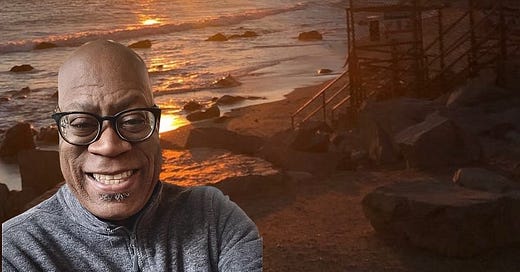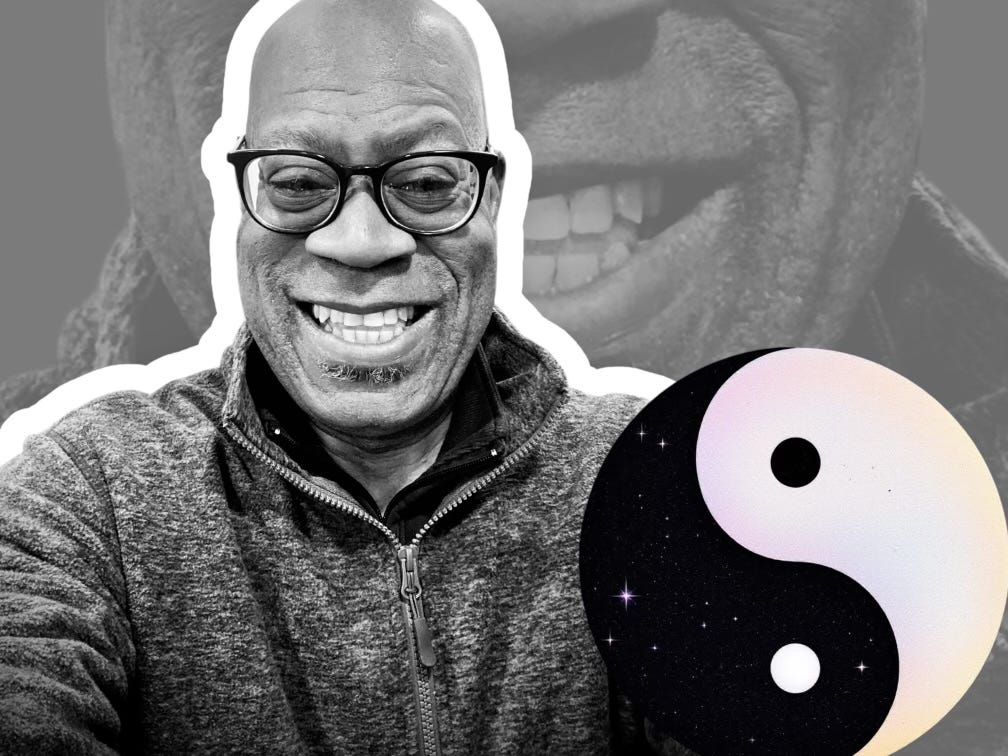I don’t think much about the future.
Not in the way most people do. No five-year plans, no long-term goals, no anxious projections about where I’ll be or what I’ll have.
I live each day as it comes, luxuriating in the simple rhythms of the present—sipping a dirty chai in a dimly lit coffeehouse, flipping through pages of books that nourish my mind, feeling the weightlessness of owning little and wanting even less.
There’s a strange, almost illicit pleasure in this existence, a life stripped down to its barest essentials.
Some would call it reckless, or directionless, or even lazy. I see it as a quiet act of defiance against a world obsessed with progress, accumulation, and control.
My life is generally peaceful, spartan, and unburdened. I don’t stay up at night worrying about the stock market or whether government benefits will dry up.
The tax code is edited? I barely flinch. The idea of losing wealth, of not having enough, does not concern me because I have intentionally unshackled myself from the tyranny of “more.”
Death does not scare me either. I don’t spend time bargaining with the future in hopes of prolonging life.
Seneca, the Stoic, once wrote: “You act like mortals in all that you fear, and like immortals in all that you desire.”
Most people live as if they are guaranteed infinite tomorrows, yet they hoard and scramble as if today is their last. I refuse to play that game.
And yet, despite the serenity of this present-focused existence, I can’t shake a gnawing question:
Is this enough?
The Paradox of Being Stuck in the Present
The problem is not that I fear the future, but that I lack any compelling reason to think about it. I am not waiting for retirement, nor am I chasing some grand vision of success.
My life, as it stands, is a comfortable orbit around the now—deliberate, measured, stripped of the unnecessary. But here’s the thing: I am stuck. Not in regret. Not in fear. Just in nothingness.
I wake up. I drink my coffee. I read. I walk. I move through my days like water flowing around stones, without resistance, without force. And while that might sound blissful, I suspect that even water, over time, wishes to carve something new.
This is where Eastern philosophy and the old sages present me with a dilemma.
Lao Tzu and the Art of Letting Go
Lao Tzu, the ancient master of non-attachment, would tell me that my current state is precisely where I should be. “Do you have the patience to wait until your mud settles and the water is clear?” he asks.
I do. I have perfected the art of stillness, of non-striving. But here’s what Lao Tzu also says: “When you realize nothing is lacking, the whole world belongs to you.”
Nothing in my life is lacking—except maybe a deeper why. And yet, should I chase after a why? Would that not disrupt the very peace I’ve cultivated?
Confucius and the Call to Meaningful Action
Confucius would argue that a life of contemplation is good, but a life of action is better. “At 40, I had no more doubts,” he famously said.
But me, I am past 40, and doubt is not my issue—it’s stagnation. Confucius believed in the path of ren, the virtue of becoming fully human through duty and service. To him, meaning was not found in stillness but in purpose, in aligning oneself with a greater order.
I often wonder whether am I failing to meet some inner obligation by refusing to look forward? Have I mistaken tranquility for fulfillment?
Mencius and the Seeds of Growth
Mencius, one of Confucius’ intellectual heirs, saw human potential as a sprouting seed. Left untended, it remains dormant. Nourished, it grows. He would likely say that I have mastered one half of life’s equation—the art of living in the present—but that I am neglecting the other half: the responsibility to cultivate a future that allows me to grow into something more.
If the seed never reaches upward, if it never pushes against the soil toward the light, is it truly living?
Lucretius and the Void of Expectation
Lucretius, the Epicurean poet, might urge me to relax. He saw the universe as indifferent, an endless dance of atoms colliding and dispersing. He’d likely remind me that worrying about the future is an illusion, that striving only leads to suffering.
And yet, Lucretius also understood the nature of desire—that even in a world without inherent meaning, humans still crave direction. To exist is to want something, even if that something is simply a reason to keep moving forward.
Revisiting the Future—Without Worshiping It
Perhaps my mistake has not been in ignoring the future, but in treating it as something irrelevant. The Taoist in me resists attachment, but the Stoic in me knows that a life without direction is a wasted one. I do not want to live under the tyranny of tomorrow, but neither do I want to remain indefinitely in a comfortable purgatory of today.
What, then, is the middle way?
Maybe it is this: to begin imagining a future without fixating on it. To let my life have momentum without losing my presence in the now. To resist the compulsion to control tomorrow while allowing myself to anticipate it with curiosity rather than indifference.
Lao Tzu teaches surrender. Confucius teaches responsibility. Seneca teaches resilience. Mencius teaches growth. Lucretius teaches detachment.
Somewhere in their wisdom lies my answer.
So maybe, just maybe, it’s time to revisit the future—not as a desperate grasp for certainty, but as an experiment in possibility. To let myself wonder, just a little, about what lies ahead.
Not because I need to escape the present. But because even the most content river must, at some point, meet the ocean.
Folks, we have some tough times in front of us. So if you find my nomadic wisdom valuable in helping to set a positive tone for your day, please join me as a paid member supporter at only $6.00/month or $60.00/year.
Or feel free to tip me some dirty chai latte love here if you feel so inclined.
Every bit counts as I strive to deliver high quality feature articles into your inbox on a daily basis. Never any paywalls, just my Taoist raw thoughts which are open to everyone on what it means to be human.
Your contributions are appreciated in support of my full time work and calling.
Much Love,
Diamond- Michael Scott — aka The Chocolate Taoist
PS: Here are a couple of other simple ways you can support others while supporting yourself
Reshare your favorite takeaway on Substack NOTES
SHARE this article and publication 👇
Join and promote my new Chocolate Taoist “Nomadic Wisdom Journaling Program” HIGHLY RECOMMEND 💥







Wonderful musing. So many great concepts but one word stands out for me because I talk about this a lot. Possibility. And that seems to always have its genesis in a sense of knowing, an intuitive nudge that creates a bit of excitement in the heart and says, "Yes! Look in that direction. It feels right."
I'm really captivated by this article Diamond. You are fussing with something at a layer deeper than how we move through the world. You move through the world with tremendous clarity, wisdom, helpful pacing, wise attachment and detachment, and essential joy. And you are detecting something asking for attention. It sounds like something inspiring you to explore a sense of why, purpose, meaning. Something that connects you, binds you to an energy that includes you and expands beyond you. I would love to know more as you explore.